This is the latest piece in NSNO’s new series, “The Future is Bright.” We are profiling incredible educators from across our community. They are helping our students build brighter futures through the work they do each day, and their leadership creates a brighter future for our schools and our city.
Many of these educators are connected through programs NSNO leads for:
- classroom teachers (The New Orleans Teacher Community),
- current and soon-to-be principals (The Principal Collaborative and the Novice Leader Academy), and
- current and aspiring system-level leaders (E3 Fellowship).
Some share a school building, a network, or a mentor. All of them are united in their purpose to give our students the best possible education, and in so doing, build a brighter future for our children and for us all.
Today, we profile Jasmine Graves Black-Clemons, Principal of Akili Academy of New Orleans and member of NSNO’s Novice Leader Academy (NLA).
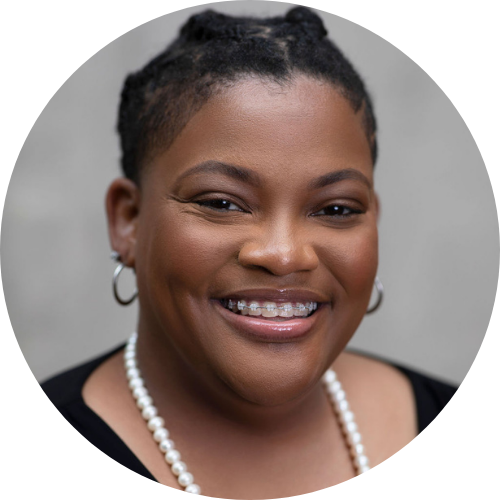
Jasmine Graves Black-Clemons is the principal of Akili Academy of New Orleans, a public K-8 school in the Upper Ninth Ward neighborhood that was founded in 2008. She’s confident she’s in the right role.
“I truly believe that God led me to be here. Because everything is falling into place,” she explains. “This is what I was supposed to be. It took me a long way around and a whole bunch of student loans to get here. But you know, I’m here. And it’s something that you have to be called to do.”
She didn’t start off wanting to work in education. Growing up, she had different ambitions.
“I didn’t want to be a teacher at all, I wanted to be a Supreme Court justice,” she explains.
But as a student at Ohio State, she signed up for the work-study program to be a teaching assistant in the local public schools. It paid well, she liked working with children, and she was successful at it–but as graduation approached, she was still drawn to the law.
Graves Black-Clemons decided to attend Loyola University New Orleans College of Law, where she was focused on family law and criminal defense. But when she and some friends decided to start a mentoring group for middle school girls, she ended up back in public schools.
“We wanted to be examples of Black women that cared about them and had some similar stories as them, that had persevered. We wanted them to know that they could persevere too.”

Through a law school internship, Graves Black-Clemons was also working with young people in the juvenile justice system. She kept feeling that they might have had a very different future if they’d had different experiences early on.
“If I would have just gotten you a little earlier, if so many other systems didn’t fail you? You make your own choices, but…if I could have just inspired you earlier in life, I could have possibly made a difference,” she says.
After law school, Graves Black-Clemons transitioned back into education to help do just that. She believes deeply in the agency of young people, and she wanted to help guide them. In 2009, she joined the founding team of Benjamin Mays Preparatory School in the Desire neighborhood of New Orleans. In the beginning, she served as the enrichment programs coordinator, and she was determined to guide children to reach their dreams and be active members of their community. She maintained that focus through other roles over the years, such as dean of students and social studies teacher.
“When I tell people about my ‘why’ about education,” she explains, “a lot of it has nothing to do with kids being smart. Kids are smart. We don’t make them smart, we just keep growing their brains. It’s about kids being good citizens so that they can have a good life, with choices.”
Benjamin Mays eventually closed, and Graves Black-Clemons joined the founding team of Paul Habans Charter School. She served in many roles there over the years, including social-studies teacher, dean of culture, and director of student culture.
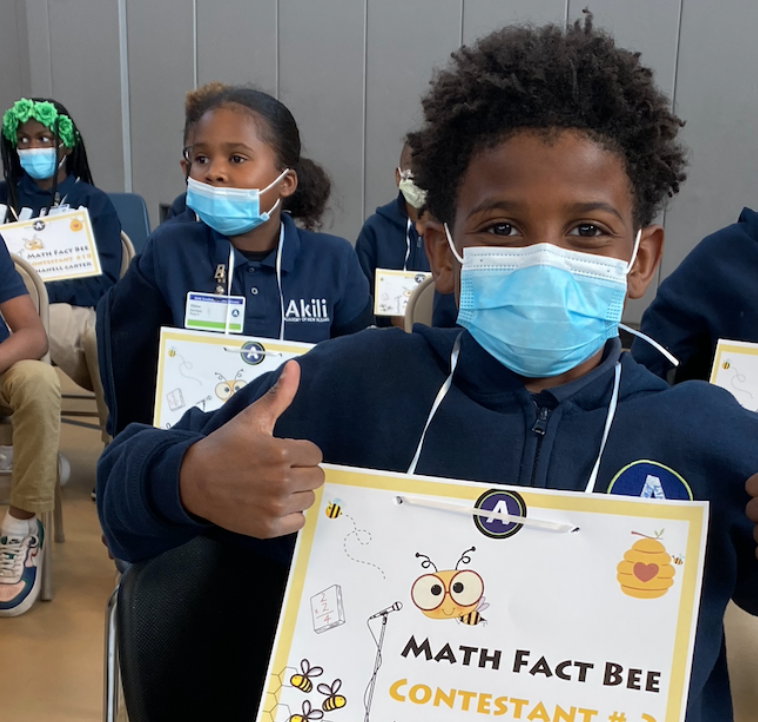
At both Mays and Habans, Graves Black-Clemons found that she was able to build strong relationships with students who often found themselves in trouble, or who were seen as “difficult” to work with. She talks about one student, KC who arrived at her school in the fourth grade after moving to New Orleans from Honduras. He was struggling to adjust, and often ended up in her office for behavior issues.
“I was the only person that had patience for KC, and I just loved him. I held him accountable, because he needed structure and discipline.”
KC spoke Spanish, and he was surprised and excited when he learned that Graves Black-Clemons did, too. She started reading books with him in Spanish. Their relationship became a positive force for KC. It was for Graves Black-Clemons, too.
“What’s so amazing about our kids is that you think you’re helping them–and they’re helping you,” she explains.
This support was profound after Graves Black-Clemons experienced an immense loss.
“My wife suddenly passed away,” she explains. “And I was out for a week, and the kids knew I never missed work ever–ever. And KC called me. He just kept calling on my work phone and leaving me a message. He’d say ‘Ms. Graves, what’s wrong? It’s KC. You haven’t been here…when are you coming back? You’ve got to come back.’”
Graves Black-Clemons would continue to build these strong relationships when she moved into her next role, as the principal of Akili Academy of New Orleans. At Akili, Graves Black-Clemons says she shows students love while holding a high academic standard.
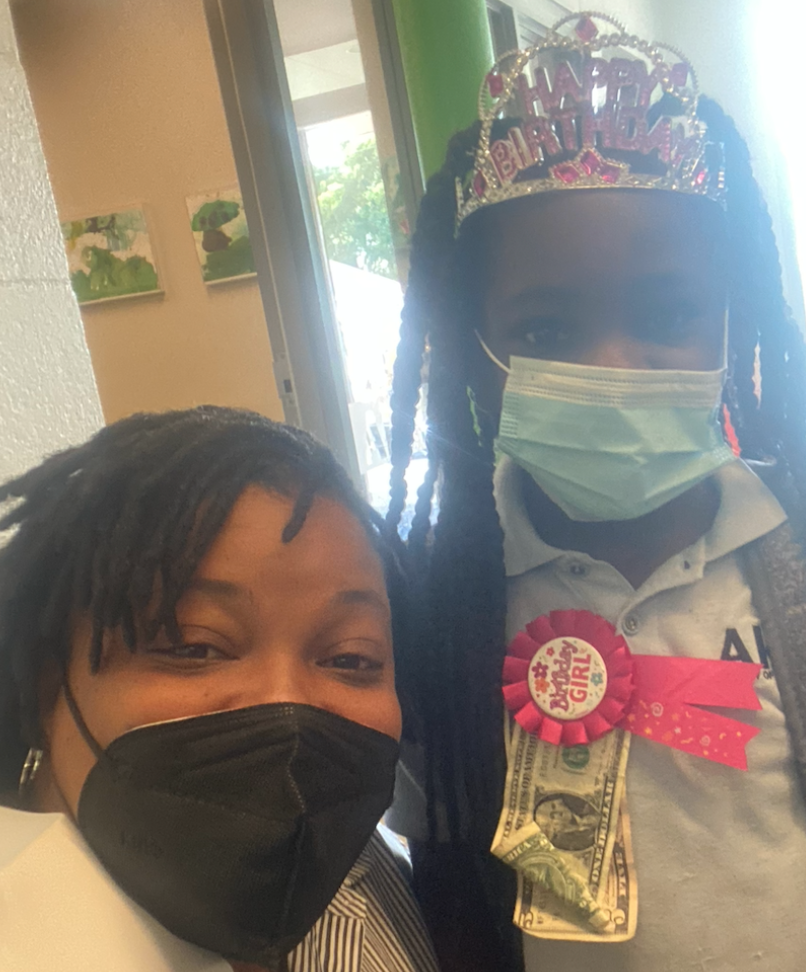
“We’re getting kids to understand this is a place where people love you,” and their priority, she says, “is you learning. Then the second thing that we’re going to be pushing are extracurriculars. We have an extensive enrichment program–band, and cheer, and dance, and majorettes, and yearbook, and art, and theater. It’s super vast, we also have a vast sports program. But all of those key things come after academics.”
Running a school with so many offerings is difficult work. It’s particularly hard, says Graves Black-Clemons, because of the poverty that so many of her children experience.
“The environment in general is very challenging,” she explains. “And all-consuming.”
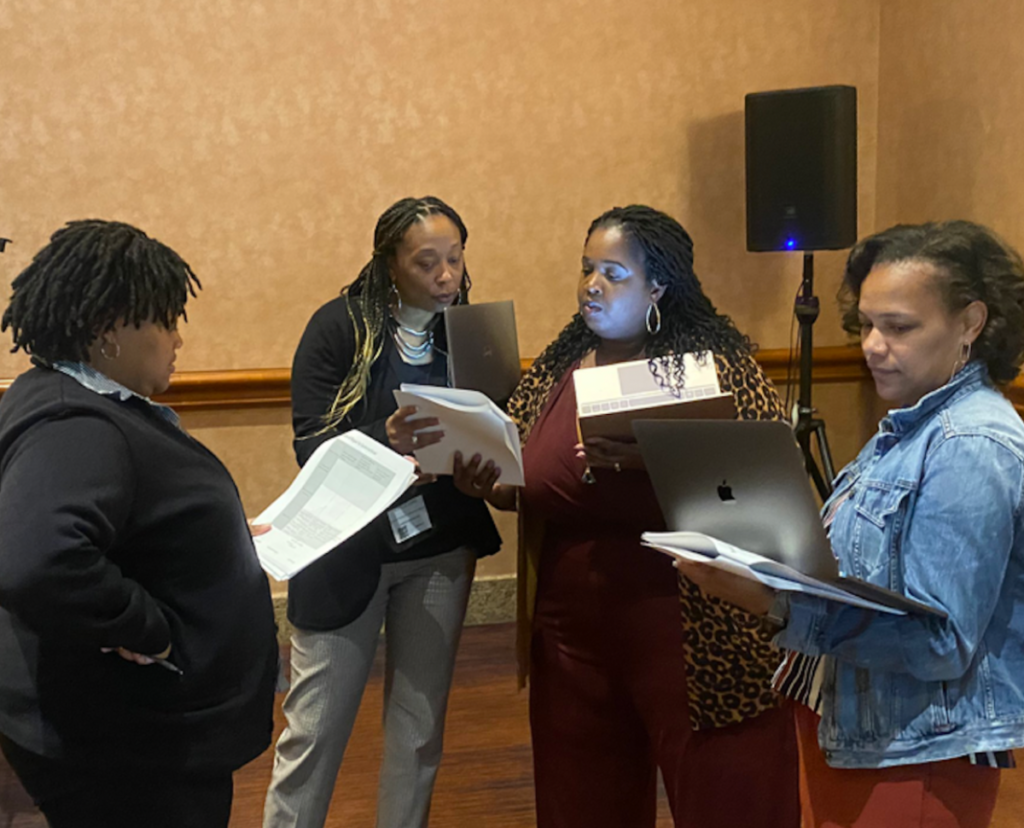
Graves Black-Clemons says that her participation in the Novice Leader Academy (NLA) has allowed her to release some of the stress she feels and troubleshoot some of her challenges.
“It’s really nice to be connected with a group of women that are going through the same thing you’re going through,” she says. “Being able to vent, being able to bounce ideas off each other, being able to be encouraged is really important.”
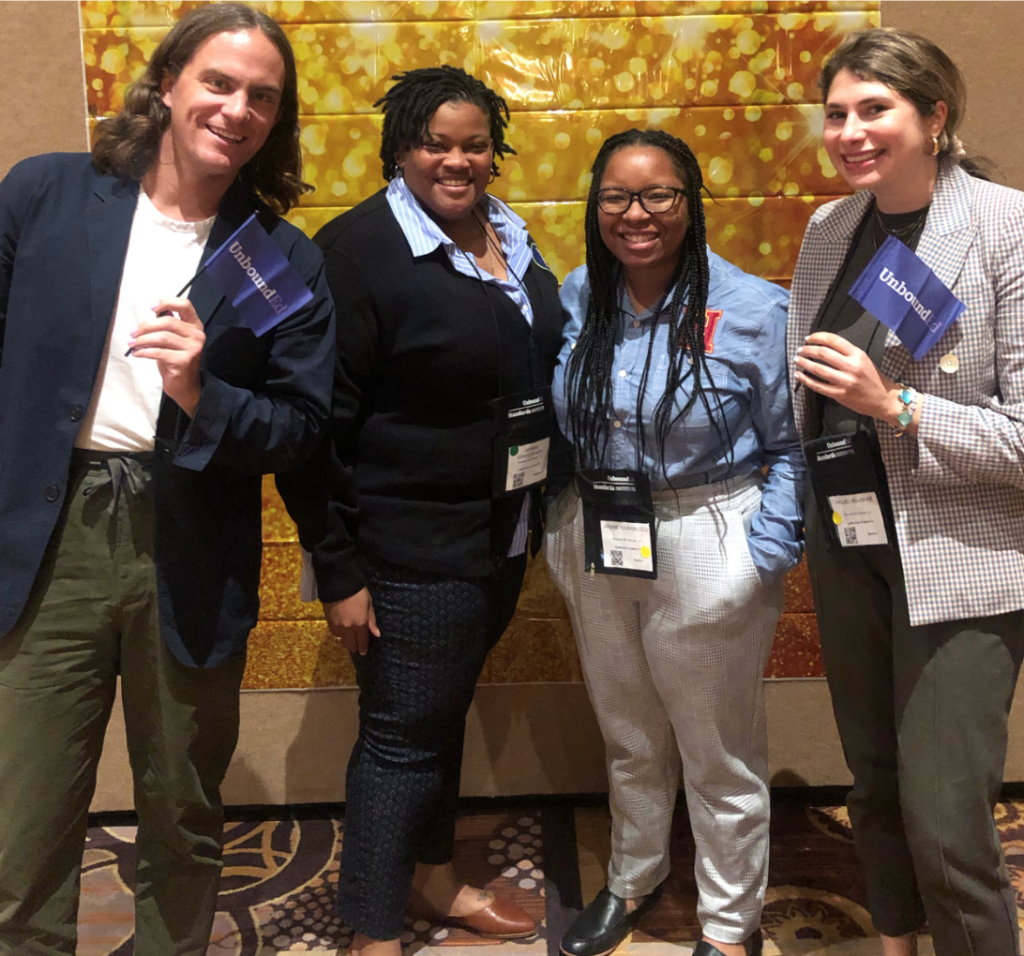
She’s also grateful for the mentorship the program offers from two expert educators, Alexina Medley and Amanda Aiken.
“Amanda and Ms. Medley have been priceless,” she says. “Amanda meets me where I am. She checks in on my mental health. I know that if I have a question about something, I can always ask,” she says.
This type of support makes the work more sustainable for Graves Black-Clemons. She’s also sustained by the relationships she’s built with students over her career. Twenty years into this work, she is still connected with many of them. And when they call, she says, they know what to expect. She says that when KC gets in touch, for instance, he can predict the start of their conversation.
“He knows what I’m going to ask him,” she says. “He knows I’m going to ask, ‘Are you doing the right thing?’”
